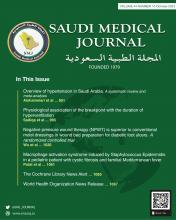SEPTEMBER 20, 2023 - In a recent randomized clinical trial of patients with fibromyalgia, cognitive-behavioral therapy (CBT)—which uses structured techniques to alter distorted thoughts and negative moods—was superior to a matched education treatment in reducing the interfering effects of pain and other aspects of fibromyalgia on daily living.
Within the group that received CBT in the trial, which is published in Arthritis & Rheumatology, improvements were at least partly attributable to reductions in what’s known as catastrophizing, a state comprised of cognitive and emotional processes such as helplessness, rumination, and magnification of pain complaints.
Neuroimaging tests indicated that CBT exerts these effects by altering the connectivity of specific regions of the brain. Therefore, changes in the brain circuitry underlying pain catastrophizing may underpin CBT’s benefits for patients with fibromyalgia, a condition characterized by function-impairing symptoms such as widespread pain, fatigue, cognitive difficulties, and psychosocial distress.
“These findings contribute to a growing literature highlighting the benefits of non-pharmacologic treatments—including CBT—for chronic pain conditions such as fibromyalgia,” said corresponding author Jeungchan Lee, PhD, of Spaulding Rehabilitation Hospital and Harvard Medical School. “Identifying the multiple biopsychosocial mechanisms by which these treatments help to alleviate pain may help to facilitate the practice of precision pain medicine and improve treatment outcomes for the many patients suffering from chronic pain.”
URL upon publication: https://onlinelibrary.wiley.com/doi/10.1002/art.42672
Full citation: “A Randomized, Controlled Neuroimaging Trial of Cognitive-Behavioral Therapy for Fibromyalgia Pain.” Jeungchan Lee, Asimina Lazaridou, Myrella Paschali, Marco L. Loggia, Michael P. Berry, Dan-Mikael Ellingsen, Kylie Isenburg, Alessandra Anzolin, Arvina Grahl, Ajay D. Wasan, Vitaly Napadow, Robert R. Edwards. Arthritis Rheumatol; Published Online: 20 September 2023 (DOI: 10.1002/art.42672).
Copyright © 2019 The Cochrane Collaboration. Published by John Wiley & Sons, Ltd., reproduced with permission.
- Copyright: © Saudi Medical Journal
This is an Open Access journal and articles published are distributed under the terms of the Creative Commons Attribution-NonCommercial License (CC BY-NC). Readers may copy, distribute, and display the work for non-commercial purposes with the proper citation of the original work.






